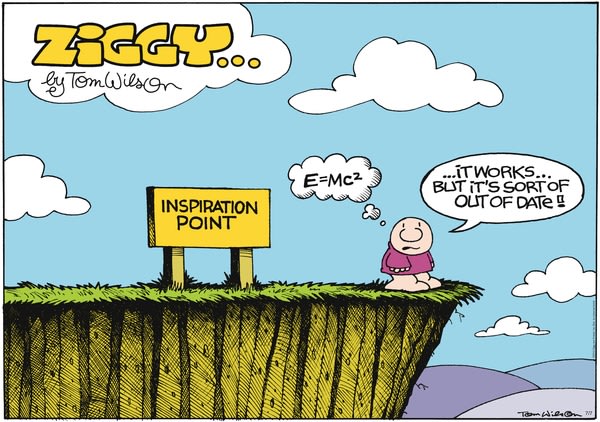Few
Americans ever witness firsthand the level of evil human beings are
capable of in countries where monstrous dictators slaughter their own
citizens, or partisan extremists murder innocent civilians based on
their ethnicity or religious affiliation; that is a benefit of living in
a civilized society. However, there is an element in this country
exhibiting the same inhumane qualities toward their fellow citizens that
Americans hear about in lawless African nations and governments
dominated by Islamic extremists, and the atrocities are at the hands of repugicans beholden to corporations and religious extremists. It
appears that just as one thinks repugicans can hardly stoop any lower
in their assault on Americans, they sink to another level of severity
and it is unlikely the people have seen or felt the full force of
inhumanity inherent in extremism permeating the repugican cabal.
There
are hardly comparisons in American history of an entire party
acquiescing to the will and whim of extremists in their ranks, and their
willingness to act in concert with cruel fanatics condemns the entire
party; not just the extremist wing. What is astonishing, really, is that
after four years of obstruction, phony debt crises, killing jobs, attacks on women, and obviously deliberate attempts to thwart economic recovery that cost them dearly in the 2012 election, repugicans could not even wait for
2013 to unleash more severity on the people. It is true a major factor
in the repugican cabal’s four-year assault on Americans has its basis in their
racial animus toward President Obama, but after he won re-election it is
glaringly obvious their hatred is toward the American people as much as
the government meant to serve them.
The first few months of 2013
were dominated by repugican atrocities such as blocking benign gun
safety measures, wasting time repealing the Affordable Care Act, fabricated
scandals involving the IRS doing its job, the attack on diplomats in
Benghazi, and blocking the budget process after Senate Democrats passed a
budget the repugican cabal complained was lacking for four years. In fact,
following up their non-existent performance in the President’s first
term, repugicans have made absolutely no attempt to govern save their
rapid deployment to pass legislation protecting wealthy airline
passengers “suffering” the effects of their sequester cuts. However, the
past two months have brought out the most extreme assault on Americans
in repugican states and in Congress, and no demographic is being spared
callous disregard that is the new normal in repugican politics.
In several repugican-controlled states legislators are attacking women’s rights with impunity and they are using despicable means to achieve their goals from inserting harsh abortion restrictions in anti-Muslim legislation in North Carolina, to slipping personhood legislation in a budget in Ohio redefining pregnancy. In Wisconsin, Koch acolyte Scott Walker signed legislation into effect making forced ultrasounds mandatory including, in some cases, invasive transvaginal
ultrasounds Walker claimed helps improve a woman’s ability to make an
informed choice as well as being beneficial to women’s health.
The
ban on abortions after 20-weeks in Texas may have been chalked up to
savage evangelical extremists, but this week teabagger hero Senator
Marco Rubio is slated to introduce the same restriction in the United States Senate; the repugican House already passed, and failed, to enact
similar legislation earlier in the year. The Texas bill is
extraordinarily Draconian and dangerous to women’s health because there
is no exception to the law including if a woman is carrying a deformed
and dying fetus, that incidentally, is insignificant and disposable to repugicans the second it breathes air and becomes a human being.
In
nearly twenty repugican states, they have rejected Medicaid expansion
that costs the state nothing for 5 years, and removing the economic
consequences informs their only purpose is withholding medical care from
millions of Americans out of sheer cruelty. In the callous repugican
House, they intend on slashing
the SNAP program in an incredibly cruel farm bill, and the extremist
wing is furious the $20.5 billion in cuts is too small and not the $135
billion included in Paul Ryan’s budget. Maybe repugicans are not using
chemical weapons against American citizens, but their cuts to Meals on
Wheels, food stamps, and housing and heating assistance to the neediest
Americans is tantamount to slow murder.
In what has to be a cruel
attempt to stay in power to finish their assault on the people, several repugican states began working to restrict voting rights to millions of Americans within hours of the equally callous wingnut Supreme Court’s ruling
that, for all intents and purposes, destroyed the Voting Rights Act.
The effort is not confined to repugican states as another extremist,
Ted Cruz, attempted to insert voting restrictions
in the Senate’s immigration reform bill and it is unlikely repugicans
will allow new voter protections to replace the VRA wingnuts have
panted to undo for five years.
There are those who claim that not
all repugicans should be indicted as callous monsters, but that is
faulty thinking. Doubtless most people know, or have heard of people who
assert they believe in voting rights, gay rights, healthcare for all,
women’s right to choose, Social Security and Medicare, and food
assistance for needy children, seniors, and unemployed Americans, and
yet they check every box next to a repugican candidate in the privacy
of the voting booth. Candidates, incidentally, who campaigned on, and
vote for, legislation eliminating healthcare, overtime pay, food stamps,
and women’s rights and they garnered support from 47% of Americans in
the last election informing that cruelty is not restricted to repugican
politicians. What is curious though, is that the great majority of
voters support every single policy repugicans oppose whether it is gun
safety measures, increasing Social Security and Medicare benefits, food
stamps for the needy, or overtime and paid sick leave.
It
is time for Democrats, pundits, and repugicans to cease pinning the
blame for the heartless repugican policies on extremists in the cabal,
and assign blame where it rightly belongs; to any and every repugican
voter and politician who supports what can only be labeled cold-hearted
regard for Americans. It is also a mistake to think for one minute that repugicans are only assaulting the poor and women and recognize that
every American is affected by repugicans killing jobs, destroying
public sector union representation, environmental regulations, allowing
America’s infrastructure to fall deeper into disrepair, or driving more
of America’s children into dire poverty; seemingly for sport. It is safe
to say that every repugican voter, politician, and so-called social
'conservative' are representing the worst of humanity, and if they were
not heartless monsters, they would oppose repugican ideology that is
founded on sheer inhumanity and hate for their victims that sadly are
also their fellow Americans.






















 It's
done in the name of research, but it's also done in the name of
tradition. Scientists tend to taste what they are studying. After all,
Charles Darwin dined on all she species he described in his works. In
the case of marine biologists, that means some exotic seafood. Peter
Girguis and his colleagues ate tubeworms specimens.
It's
done in the name of research, but it's also done in the name of
tradition. Scientists tend to taste what they are studying. After all,
Charles Darwin dined on all she species he described in his works. In
the case of marine biologists, that means some exotic seafood. Peter
Girguis and his colleagues ate tubeworms specimens. 



